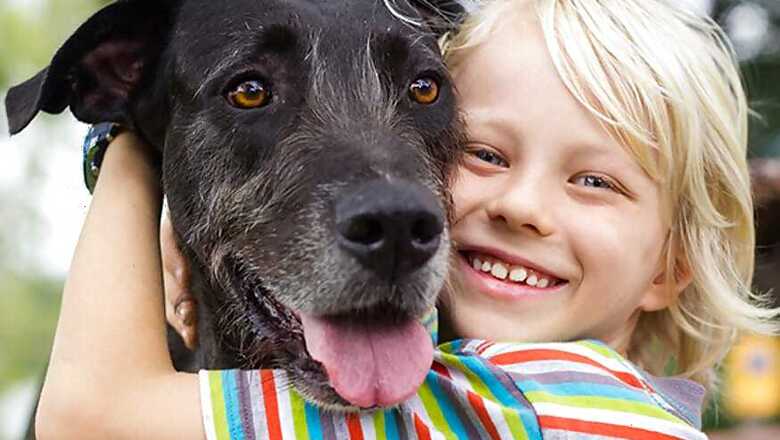
views
Ever wondered why some dogs are so friendly with their owners? It's because of an association with genetic variations in sensitivity for the hormone oxytocin, according to a new study.
Since their domestication from their wild ancestor the wolf to the pets we have today, dogs have developed a unique ability to work together with humans.
One aspect of this is their willingness to "ask for help" when faced with a problem that seems to be too difficult.
However, there are large differences in the willingness to ask for help and to collaborate with humans, between breeds and between dogs of the same breed, according to the researchers.
This ability is associated with variations in sensitivity for the hormone oxytocin -- known to play a role in social relationships between individuals.
The effect of oxytocin depends on the function of the structure that it binds to, the receptor, in the cell, the researchers said.
"Oxytocin is extremely important in the social interactions between people. And we also have similar variations in genes in this hormone system," said Per Jensen, Professor at the Linkoping University, Sweden.
"Studying dog behavior can help us understand ourselves, and may in the long term contribute to knowledge about various disturbances in social functioning," Jensen added.
For the study, published in the journal Hormones and Behavior, the team examined 60 golden retrievers whose levels of oxytocin in the blood was increased by spraying the hormone into their nose.
The results showed that some dogs with a particular genetic variant are more sensitive to the hormone oxytocin, making them more likely to seek help from their owners.
These results help us understand how dogs have changed during the process of domestication.
Analysing DNA from 21 wolves, the researchers found the same genetic variation among them.
This suggests that the genetic variation was already present when domestication of the dogs started 15,000 years ago.




















Comments
0 comment